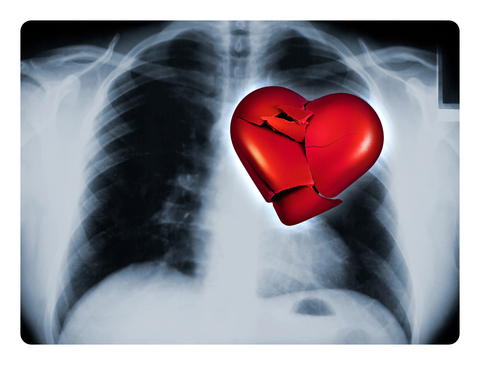
The effect of antidepressants on arteries was separate and independent from any diagnoses of 'depression'
Note from CCHR: One of the most common tricks of the psychiatric/pharmaceutical industry is whenever a valid study shows psychiatric drugs as the cause of medical damage to patients, such as heart attack, stroke, sudden death, diabetes etc, they will quickly spit out press releases saying their studies show ‘depression’ or ‘bipolar’ or some ‘psychiatric disorder’ is the actual cause. You’ll start seeing headlines such as Depressed patients more likely to have heart attacks or Patients with Bipolar at risk for stroke, or Patients with Schizophrenia Prone to Develop Diabetes…. Now that’s a nifty little trick that psycho/pharma does, but the fact is those studies are bogus. And here’s how you can tell; Psychiatrists have never proven that people diagnosed “schizophrenic” or “bipolar” or “depressed” were more prone to develop any medical or life threatening condition – that weren’t already on drugs, or who had been on drugs. Period. They just omit that one key fact from all their propaganda studies. What we found significant about this latest study is that the authors actually address this very point in preemptively stating their findings were separate and independent from any diagnoses of ‘depression.’ — CCHR
NaturalNews – April 6, 2011
by Sherry Baker, Health Sciences Editor
Millions of Americans take antidepressant drugs — most are Prozac and related antidepressant medications in the class known as selective serotonin reuptake inhibitors (SSRIs). A gigantic money maker for the drug giants, the SSRIs bring in billions to Big Pharma a year. They are promoted and prescribed as safe treatments for depression, anxiety and even premenstrual tension — despite a long list of possible side effects ranging from sexual dysfunction and headaches to dizziness and suicide.
Now you can add another reason to think twice before agreeing to take antidepressants. At the American College of Cardiology meeting in New Orleans, Emory University School of Medicine scientists have just announced they’ve discovered that the drugs are linked to thicker arteries. The significance? The findings strongly suggest Prozac and similar meds could raise the risk of heart disease and stroke.
Depression is sometimes listed as a risk for heart disease. But that was not the explanation for the Emory findings, according to Amit Shah, MD, a cardiology fellow at Emory University School of Medicine. Instead, Dr. Shah said in a press statement, the data indicates the effect of antidepressant use on arteries that was revealed by the study is separate and independent from depression.
Dr. Shah worked with Viola Vaccarino, MD, PhD, chair of the Department of Epidemiology at Emory`s Rollins School of Public Health, on the groundbreaking study which involved 513 middle-aged male twins who both served in the U.S. military during the Vietnam War. Twins are genetically the same but may be different when it comes to other risk factors such as diet, smoking and exercise, so studying them is a good way to factor out the effects of genetics.
The Emory research team measured the thickness of the lining of the main arteries in the neck (carotid intima-media thickness, or IMT) by ultrasound. The results showed that among the 59 pairs of twins where only one brother took antidepressants, the one taking the medication had a significantly higher carotid IMT — even when heart disease risk factors such as smoking were taken into account. In fact, the thicker arteries were found in antidepressant users whether or not they had ever had a stroke or heart attack in the past.
In the new study, the scientists documented higher carotid IMT in research subjects who used SSRIs (60 percent of those who took antidepressants) as well as those who used other kinds of antidepressants. Curiously, higher levels of depressive symptoms were associated with thicker arteries only in those taking antidepressants — so the Big Pharma meds themselves seem to be the key to this disturbing change in the cardiovascular system.
“One of the strongest and best-studied factors that thickens someone`s arteries is age, and that happens at around 10 microns per year,” Dr. Shah stated. “In our study, users of antidepressants see an average 40 micron increase in IMT, so their carotid arteries are in effect four years older.”
How could antidepressants have an effect on blood vessels? The Emory scientists think it may result from changes in serotonin. The SSRIs are the most commonly prescribed antidepressants and they are known to increase the level of serotonin in the brain. Other kinds of antidepressant drugs also impact serotonin levels. And, although serotonin is a chemical that helps some brain cells communicate, what is often ignored in the hyping of SSRIs is that serotonin functions outside the brain, too.
Actually, most of the body`s serotonin is found outside the brain, especially in the intestines, Dr. Shah stated in a media release. What`s more, serotonin is stored by platelets, the cells that promote blood clotting; the chemical is released when platelets bind to a clot. The chemical can, in fact, act in a variety of ways and either constrict or relax blood vessels, depending on whether the vessels are damaged or not.
“I think we have to keep an open mind about the effects of antidepressants on neurochemicals like serotonin in places outside the brain, such as the vasculature. The body often compensates over time for drugs` immediate effects,” Dr. Shah said.

